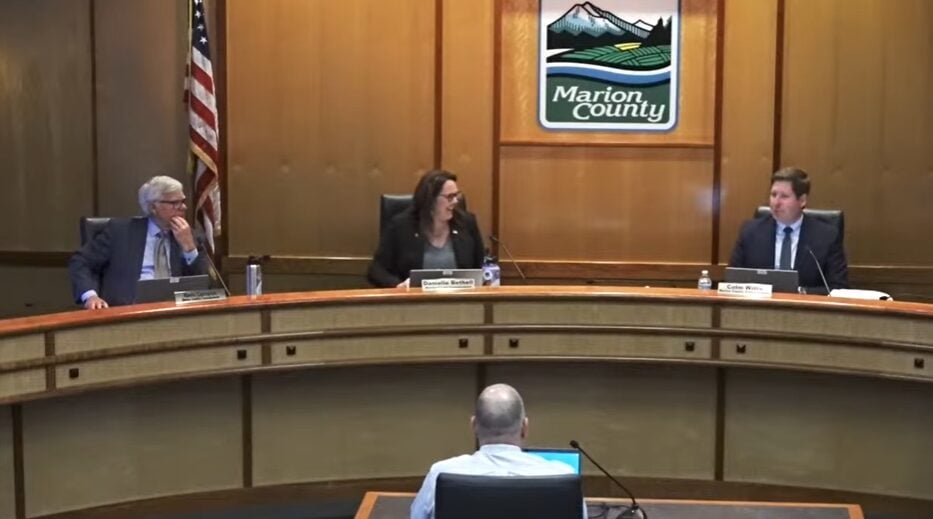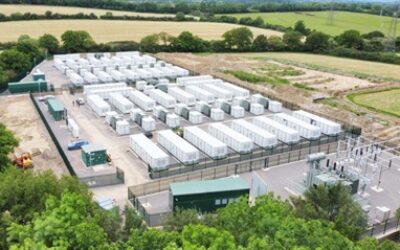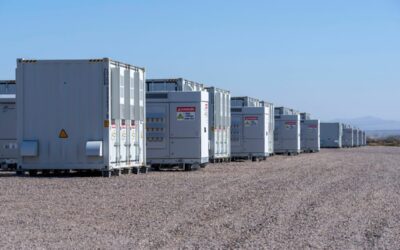
Oregon’s Marion County has become the latest jurisdiction in the US to introduce a moratorium on utility-scale battery storage, after its Board of Directors (BoD) made changes to its zoning laws last month.
With battery energy storage systems (BESS) not explicitly listed within its zoning laws, the County’s planning director, Brandon Reich, asked the BoD during a recent meeting to clarify whether utility-scale systems are permitted within the jurisdiction.
Although several jurisdictions around the US have enacted their own moratoriums on utility-scale BESS this year, including California’s Orange County, this recent ban is believed to be the first county-wide moratorium of its type in Oregon.
With a population exceeding 350,000, Marion County ranks the fifth most populous out of the State of Oregon’s 33 counties.
Enjoy 12 months of exclusive analysis
- Regular insight and analysis of the industry’s biggest developments
- In-depth interviews with the industry’s leading figures
- Annual digital subscription to the PV Tech Power journal
- Discounts on Solar Media’s portfolio of events, in-person and virtual
BESS unaccounted for in local zoning laws
After opening up discussions at a recent BoD meeting by briefly explaining the science behind BESS technology, Reich stated the purpose of the agenda item.
“If the board agrees, this [item] will lead to an ordinance clarifying that these [battery systems] aren’t allowed at this time in the rural or urban zone,” explained the Planning Director.
Reich outlined what he perceived to be the issues with BESS technology, which included the potential for “fires, release of gases, chemicals and metals, potential pollution of air, water and soil, loss of farmland and increased demand on emergency response.”
The commissioners offered little in the way of response or discussion to the points raised by Reich, apart from Commissioner Kevin Cameron who acknowledged the presence of already operational battery storage facilities within the county.
Amongst the facilities is a 5MW/1.25MWh project owned by investor-owned utility Portland General Electric (PGE), which is located in the incorporated City of Salem within the county.
Dubbed the Salem Smart Power Center, the project was partially funded by the US Department of Energy and formed part of Pacific Northwest Smart Grid Demonstration Project.
Although small by today’s standards, the groundbreaking project was brought online during the beginning of the last decade and has been used by PGE to enhance its understanding of the technology.
In terms of larger developments within the county, RWE is progressing with a 199MW/996MWh BESS located in the City of Remington.
During the meeting, County Commissioner Colm Willis confirmed that if the BoD wanted to allow BESS development later down the line, it had the ability to do so.
Commissioners at Marion County have a history of restricting renewable energy development, after previously enacting a moratorium in 2018 on the development of solar facilities on farmland within jurisdiction.
The BESS moratorium ordinance passed unanimously without any public comment.
Town in New York State bans 5MW+ BESS facilities
As previously covered in Energy-Storage.news, calls for BESS moratoriums have been amplified during the past six months, particularly in New York State, where a handful of developers have faced strong opposition during permitting.
Some counties, such as Suffolk County on Long Island, have been particularly impacted by moratoria, with over half of the county’s towns having some form of ban on BESS in recent times.
Officials at the Town of Southampton in Suffolk County were some of the first in the country to introduce a temporary ban on energy storage, after introducing a six-month moratorium on BESS in August 2023.
After two extensions, the moratorium finally expired last month, coinciding with the publication of findings from a county steering committee. Commissioned by town officials, the committee has spent the past two years investigating how best to introduce BESS zoning laws into its planning code.
Despite their findings offering developers clear guidance on BESS zoning, the new resolution has essentially banned future development of utility-scale energy storage in the town.
Regarded by the County as “utility-scale”, BESS projects between the sizes of 600kWh and 5MW must be located at least 300ft away from residential zones, and are only permitted within zones designated for industrial uses.
Concerningly, under the new zoning laws, BESS projects larger than 5MW aren’t permitted whatsoever. Although the definition of utility-scale varies, the majority of organisations, including the National Renewable Energy Laboratory (NREL), define utility-scale as being 5MW or larger.
In response to officials at the Town of Southampton approving the new laws last month, Councilwoman Cyndi McNamara said she “believes this code can stand as a model for other local municipalities.”
As reported by Energy-Storage.news, restrictive zoning laws and BESS moratoriums have already begun to impact the development of some energy storage projects planned elsewhere in New York.
Earlier this year, East Point Energy withdrew plans for one of its 116MW standalone BESS facilities, after the New York Town of Carmel introduced its own BESS moratorium.
More recently, Northland Power experienced difficulty during permitting for one of its standalone storage projects destined for the Town of Hanover in Chautauqua County, New York.
With Southampton’s new laws effectively outlawing utility-scale BESS, developers will be hoping that other jurisdictions do not enact similar zoning restrictions, and avoid the recent experiences encountered by Northland Power and East Point Energy.
Another Long Island town, Oyster Bay in Nassau County, is scheduled to hold a public hearing on 15 July to potentially extend a moratorium, while the Town Board of Glenville in Schenectady, just north of Albany in Upstate New York, voted unanimously to enact a 120-day moratorium. Glenville councillors were quoted in local press as saying the town was introducing a pause in order to assess the technology and develop its own code.






